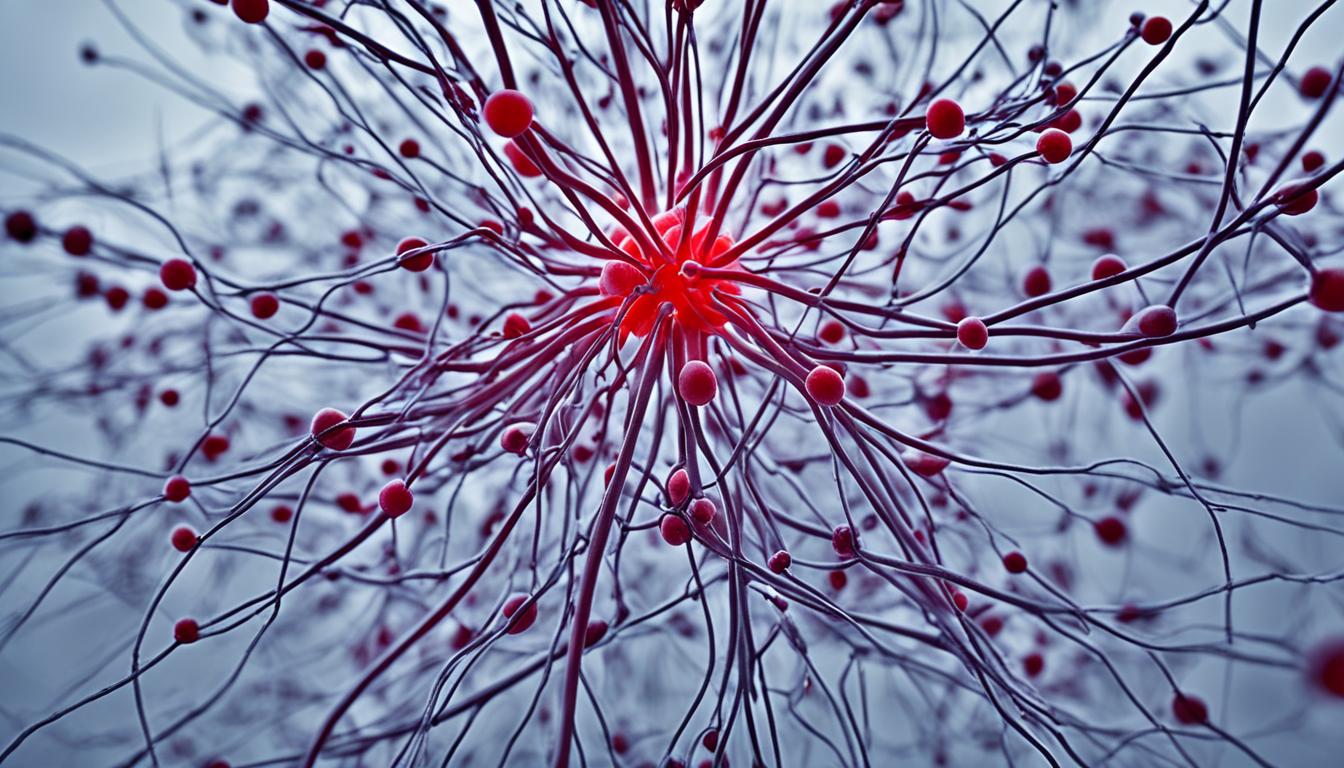Lymph nodes are small glands that help to filter lymph, a clear fluid in our bodies. When lymph nodes swell, it’s often a sign our body is fighting off an infection or illness. They can swell in many areas like the neck, armpits, and groin. Infections like colds, sinus infections, and even tooth infections can cause this. But sometimes, serious health issues like immune system problems or cancer may lead to swollen lymph nodes too.
If cancer gets to the lymph nodes, survival chances can drop. Catching this early is really important. Doctors check swollen lymph nodes for their tenderness, size, and how they feel. They might do a physical exam, blood tests, and use more tests like X-rays and CT scans. Sometimes, taking a small piece out of a lymph node for a test (biopsy) is needed to find out the exact reason for the swelling.
The treatment for swollen lymph nodes varies based on the cause. Infection-related cases might just need antibiotics. But if it’s due to cancer, treatment like surgery or chemotherapy could be necessary. To keep lymph nodes healthy, it’s good to practice good hygiene, get your vaccinations, and avoid catching infections from others.
If swollen lymph nodes don’t go away, get bigger, or come with other worrying signs, see a doctor. A healthcare provider can help figure out what’s going on. They’ll make sure you get the right treatment.
Key Takeaways:
- Swollen lymph nodes can occur as a response to an infection or illness.
- Infections, immune system disorders, and cancers are common causes of lymph node swelling.
- Early diagnosis is crucial to determine the exact cause and plan appropriate treatment.
- Treatment for swollen lymph nodes depends on the underlying cause, ranging from antibiotics to cancer treatment.
- Preventing swollen lymph nodes involves good hygiene practices and avoiding exposure to contagious infections.
Causes of Swollen Lymph Nodes and When to See a Doctor
Swollen lymph nodes, or lymphadenopathy, happen for many reasons. Common causes are infections in nearby areas. These include a sore throat, ear, or sinus infections, the flu, and diseases like mononucleosis and HIV. Even STIs can lead to swollen lymph nodes.
Yet, they can also swell due to non-infectious causes. Disorders that affect the immune system, like lupus and rheumatoid arthritis, may be behind this. So can certain types of cancer.
Several other health issues might also lead to swollen lymph nodes. These can be caused by cat scratch fever, tonsillitis, and tuberculosis, to name a few. Even reactions to medications, allergies, stress, and poor oral health could be the cause.
When cancer spreads, lymph nodes can also become swollen. You might feel pain in them when moving, especially in the groin area.
If swollen lymph nodes seem like a serious problem, a biopsy may be needed. This test checks for the exact cause of swelling. It’s an important step for doctors to diagnose the issue correctly.
Lymphoma is a kind of cancer that affects the lymphatic system. Its warning signs include long-term swelling of lymph nodes, night sweats, and weight loss. If suspected, a tissue biopsy can confirm lymphoma.
The right treatment for lymphoma depends on its stage. It might involve surgery or chemotherapy. Your doctor will suggest the best plan after diagnosis.
Conclusion
Enlarged lymph nodes show your body is fighting off infections and illnesses. Swelling may also happen in cancers like lymphoma, leukemia, and breast cancer. If you’re worried about swollen lymph nodes, reach out to a doctor. This is especially true if the swelling stays or comes with other troubling signs.
The approach to swollen lymph nodes changes with the issue causing them. This could mean taking antibiotics for infections or undergoing cancer treatments. Treatments might include surgery, chemotherapy, or the promising stem cell therapy. Yet, we need more studies to confirm its benefits.
Preventing swollen lymph nodes is key. This involves keeping good hygiene, getting your vaccines, and not sharing personal items with sick people. And always practice safe sex. Remember, if the swelling gets worse or is really painful, seeing a doctor is a smart move for a deeper look.

